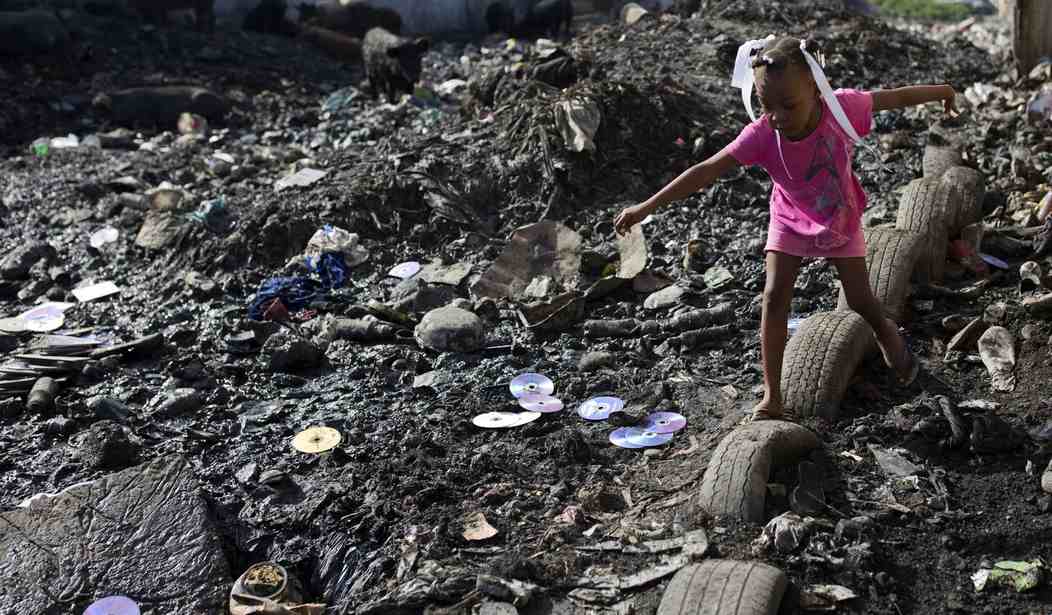I've never resented not being rich. It just never occurred to me to blame my station in life on those who were either born into wealth or acquired it through working harder than me and having better ideas on how to over-achieve.
But, for many, blaming the rich for their failures is the only way they can live with themselves. I get it. The deck is stacked against "the little guy," or white supremacy, or it's all a gigantic conspiracy to keep you down.
Think what you want. But why should you want to take from the rich and punish them for their success?
The anti-poverty group Oxfam published a report that states the world will soon see its first trillionaire. Here's what that looks like written out: $1,000,000,000,000.
Pretty amazing, what? Not so, says Oxfam.
"Since 2020, the richest five men in the world have doubled their fortunes," huffs Oxfam's Inequality Inc. "During the same period, almost five billion people globally have become poorer. Hardship and hunger are a daily reality for many people worldwide. At current rates, it will take 230 years to end poverty, but we could have our first trillionaire in 10 years."
I understand the resentment. But what I don't get is what's the big deal?
Jesus himself knew that poverty would never be eliminated. “There will always be poor people in the land. Therefore I command you to be openhanded toward your brothers and toward the poor and needy in your land."(Deut. 15:7-8).
But Oxfam disagrees with Jesus. They say we can "end poverty" in 230 years. After all, what the heck does Jesus know, right?
"Through squeezing workers, dodging tax, privatizing the state and spurring climate breakdown, corporations are driving inequality and acting in the service of delivering ever-greater wealth to their rich owners," insists Oxfam.
"Squeezing workers"? What does that mean? Workers are free to leave their jobs if they feel they're being "squeezed." This isn't the 19th century where workers are chained to the assembly line or their desks. But then, what would a report on "wealth inequality" be without the "greedy capitalist"?
Reason.com's J.D. Tucille points out that the Oxfam report evidently has something against Jeff Bezos, who is prominently mentioned in the report. Commenting on the "squeezing workers" charge, Tucille wonders how anyone could succeed with that business plan.
That seems an unlikely business plan. Did Bezos do anything else—perhaps found an online book store that grew into a global retail giant? And then, during the post-2020 timeframe that Oxfam emphasizes, did governments respond to the appearance of the COVID-19 virus by locking down populations, driving economic activity into online spaces to the benefit of people like Bezos? Yes, on both counts.
Since then, there's been a remarkable transformation, almost a miracle really. Tucille points out that "even as populations increased, the number of people living below the poverty line, adjusted for inflation, plummeted from 2.01 billion in 1990 to 701 million in 2019."
Writing in 2016, economist Deirdre N. McCloskey attributed improving prospects for the world's poor to "liberalism, in the free-market European sense. Give masses of ordinary people equality before the law and equality of social dignity, and leave them alone, and it turns out that they become extraordinarily creative and energetic."
The most persistent economic myth on the left is that the economic "pie" can only be sliced into so many pieces. But economies grow and so does the pie. While the rich will always get their share, economic growth brought about by intelligent investments by both the public and private sectors will grow the pie.
What's the solution? End poverty, not "inequality."
"Poverty and inequality are different things, but they are often conflated in political discussions," point out the Cato Institute's Chris Edwards and Ryan Bourne. "High poverty levels, which are clearly undesirable, are often caused by bad policies, such as a lack of open markets and equal treatment. Wealth inequality is different — it cannot be judged good or bad by itself because it may reflect either a growing economy that is lifting all boats or a shrinking economy caused by corruption."
There are a million good ideas to empower the poor and give them a leg up on the economic ladder. And dealing with "inequality" is not one of them.










